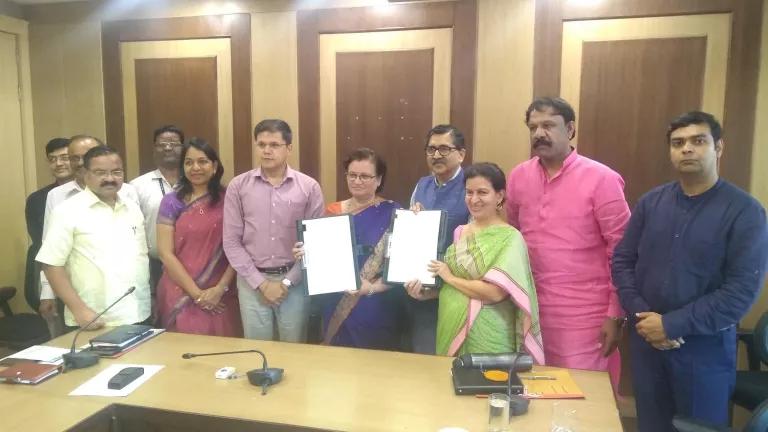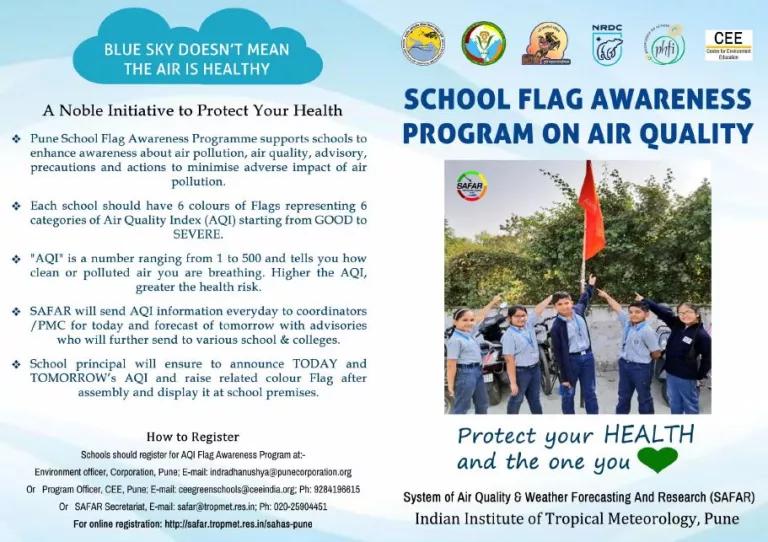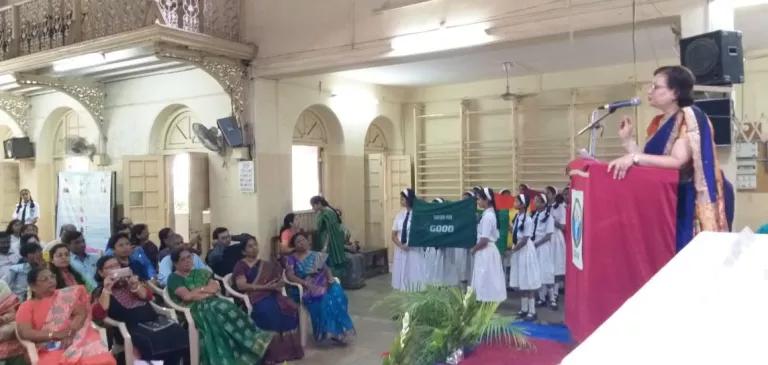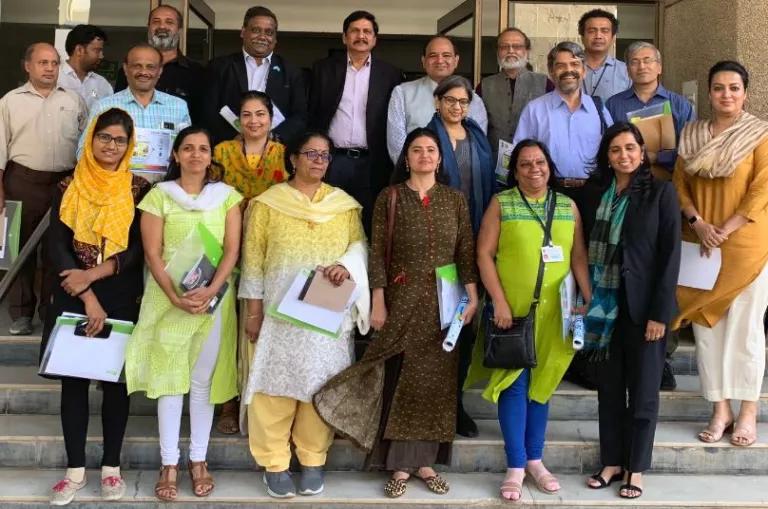
With rising pollution and temperatures, the city of Pune is taking action with new initiatives to protect communities from air pollution and extreme heat. This week, Pune entered into an agreement with local and international partners to develop health-based initiatives to build climate resilience for the city’s over 3 million residents.
Air Pollution & Extreme Heat in India Cities
Air pollution and extreme heat pose deadly threats to communities across India. More than 90% of the world’s children breathe toxic air every day globally, and it’s even worse in India. This summer marked yet another record-breaking heat season in India, and across the globe, with June recording the hottest temperatures for that month ever in Europe. Climate change is fueling temperatures higher while exacerbating air pollution.
Both air pollution and extreme heat take a toll on economic development and prosperity. Children, the elderly and the poor are especially threatened. Preparing for and responding to health emergencies caused by air pollution and extreme heat is critical to saving lives.
Memorandum of Understanding
Pune’s Mayor Mukta Tilak entered into an agreement to work on developing two innovative tools for the city: an Air Information Response Plan and a Cool Roofs Initiative. The mayor’s pledge builds on her commitments announced, and since delivered, during the Global Action Summit in San Francisco in September 2019.
Healthy air quality is essential to the economic well-being of any city. Working towards the reduction of air pollution in Pune is a priority for me.
—Shri Mukta Tilak, Pune Mayor
The Pune Municipal Corporation (PMC) is working with knowledge partners, the Indian Institute of Public Health – Gandhinagar (IIPH-G), Natural Resources Defense Council (NRDC) and others to develop the new initiatives. The Indian Institute of Tropical Meteorology (IITM), a premier research institute in India, is also a critical local partner. Pune already has close collaboration with the IITM in implementing SAFAR (System of Air Quality and Weather Forecasting and Research) air quality prediction system. Both the Air Information Response Plan and Cool Roofs Initiative are scaled up efforts of the ground breaking initiatives from the city of Ahmedabad in Gujarat.
Pune Air Information and Response (AIR) Plan
To develop the AIR Plan, Pune plans to work with a series of local experts and stakeholder to design a health risk communication plan to support the Air Quality Index (AQI) for the city. Similar to Ahmedabad’s AIR plan, the Pune plan will include an alert system for air pollution levels from the AQI, interagency coordination structure and measures on information, education and outreach to local communities, focused on vulnerable groups.
IITM, as the leading technical partner, conducts the monitoring and provides the daily AQI and air pollution level forecasts. IITM has also updated its System of Air Quality and Weather Forecasting and Research (SAFAR) to develop India’s first air quality forecasting system with a three-day forecast of air pollution levels in Pune, as well as in Delhi, Ahmedabad, and Mumbai. IITM, headquartered in Pune, works with the Ministry of Environment, Forests and Climate Change as well as the central and state pollution control boards on air quality. The mobile app “SAFAR-Air” provides an Air Quality Index forecast air pollution levels.
While Pune’s air quality is considered moderately better than other megacities in India, it is fast deteriorating. The AIR Plan advisories and precautions focus on awareness with local communities while providing a foundation for stronger measures to combat the sources of air pollution, such as Pune’s electric bus program.
With growing bodies, brains, and lungs, children are extremely vulnerable to air pollution. Children’s lungs work much faster than adult lungs and children spend more time outside, leading them to breath faster and to irreparable harm from air pollution. To build awareness and protect children, Pune announced plans to develop a “school flags” program as part of the AIR plan. The program is in collaboration with IITM, IIPHG, and NRDC. As part of the program, schools will build awareness by displaying colored-flags that show the pollution levels for that day and precautions to take depending on pollution levels. Launched in 2017, the Ahmedabad AIR Plan’s School Flags Program involves over 90 schools, reaching over 140,000 students daily.

Pune Cool Roofs Initiative
Cool roofs also lead to less air pollution since they save energy, especially on cooling appliances, such as fans and air conditioners. Leading studies show that cool roofs, through their reflective coating, keep indoor temperatures lower. Cool roofs also save energy and improve thermal comfort for occupants. Cool roofs are widely used internationally as an effective energy and money saving strategy that keeps cities cooler and reduces the urban heat island effect. Cool roofs need limited maintenance with their protective coating reapplied every 7-10 years and improve the longevity of the roof beneath it. This combined with the nearly 20% savings on air conditioning costs of the building make cool roofing very cost effective.
To improve air quality and build resilience, Pune and partners plan to develop a cool roofs initiative for the city. Through this initiative, the PMC aims to increase the thermal comfort for occupants of buildings, improve productivity and reduce energy usage. The Pune initiative builds on effective initiatives in Ahmedabad and Hyderabad covering over 3,000 slum community homes.
With a series of new programs at the national level that set forth ambitious agendas to address India’s urgent air pollution and cooling challenges—National Clean Air Programme, India Cooling Action Plan, Heat Action Plans, city-led experiences are critical in shaping national policy. The lessons from scaling city-led programs, such as the AIR Plan and Cool Roofs Initiative, can serve as a template for other cities working to address the heavy burden of air pollution and climate change on public health.

